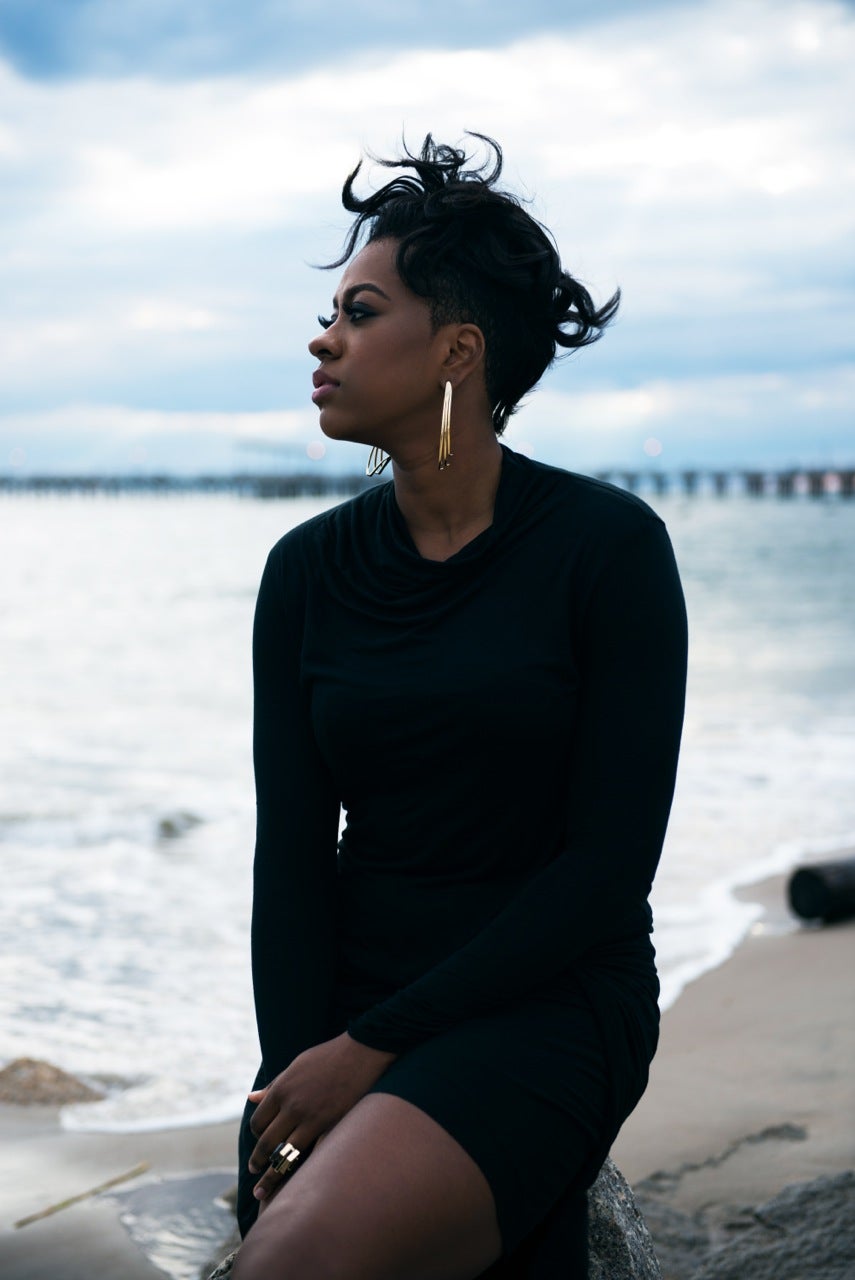
Anais Aida has lived everywhere from Senegal to San Francisco, but the stage is the only place that feels like home. Once the introverted singer plants those long stems down before a crowd, she opens up like a sunflower. Since graduating from NYU’s Clive Davis Institute of Recorded Music in 2013, Aida has carved out her own sound; her song “Waterfall” struck such a chord with Mac Miller that the Pittsburgh rapper/producer shared it via his Soundcloud account. As Aida releases her debut EP Out In The Waves, ESSENCE.com spoke with her about her musical influences, future Grammys and what makes her love songs different from most.
ESSENCE.com: You’ve moved around quite a bit growing up. How have the different places you’ve lived influenced your musical journey?
I was born in Toulouse, in the South of France. I stayed there until I was 10, playing violin and taking music theatre classics and classical choir. We moved to Dublin; that’s when I first learned English, stopped playing violin and started developing singing and songwriting. I moved to the Bay Area, California and went to Oakland School of the Arts, where I found my love for soul music. This was my first time being around gospel and R&B singers, people growing up in church.
What did you primarily hear growing up?
My mom has always played R&B—SWV, Mary J. Blige, Whitney Houston. But I was listening to Celine Dion, then in Ireland I had a rock phase. I don’t know what I listened to in Senegal, but in the Bay a lot of kids grew up in church and it was amazing being around them. It moved me in a way other genres hadn’t. I was a fan of Aaliyah, but I got into soul when I got there. Now I’m more interested in the soul created in Europe, because it’s not so restricted the way that R&B is in the U.S. I’m curious about moving over there and working with people.
Your new EP, Out In The Waves, has a lot of diverse sounds and styles.
There’s a song for everyone on the EP. They don’t all fit into that same pocket. They each have their own personality. I was experimenting and it’s also my first project. So I’m showing people my interests and where my creativity has taken me so far. I haven’t reached the place to define my sound. It’s a process for every artist.
My favorite record is “Single Rose.”
I love that one. That one was special because three months after we wrote it, the guy who played the piano part committed suicide. That was devastating. In a weird way I had a connection with that song because it was the last piece of work I’d done with him, and we were really close. Two years later I did an acoustic version to release on the anniversary of his passing. I’m actually crying at the end; it was hard to sing.
“Recover” seems like another personal record.
I started that out with [producer] Arca. We went to school together, did a lot of songs, and he moved to the UK. He’s done work with Kanye West, FKA Twigs, Bjork. He’s a genius, incredible man. It took me too long to finish the lyrics and vocals; by the time I was ready, he was busy with everything else in his world, so I had to go to other producers. But it ended up taking on a different meaning for me, because my relationship with this person with whom I’d been musically intimate was falling apart. I felt I lost my identity as an artist. It’s very much like a romantic relationship, but in a musical way.
Do you use your experiences with love in other songs?
To be honest, I’ve never been in love. So I see love a lot of different ways—self love, love with your art, love with whoever you’re creating with—not just romantic. “Waterfall” is more about self-love, perseverance. “Out in the Waves” is about not letting go of your dreams, even when it feels like you’ve hit rock bottom. And “Recover” is about letting go of fear or anything that holds you back. The day I fall in love and my heart gets broken I’ll make an amazing album like Sam Smith or Adele.
Who is your biggest musical influence?
India Arie. If I hadn’t come across her as a vocalist, I don’t think I’d ever be able to do it. There’s a similarity about our voices that I’ve never found in another artist. When I was at art school, everyone was belting at the top of their lungs—my voice was much deeper. I was like, Oh my God, I sound like a man! I started hearing India Arie, like, Whoa her voice is crazy. Singing [“Ready For Love”] over and over, I was able to develop my tone and love my voice.
What do you want listeners to get out of your music, and what goals do you have for yourself?
I want to empower and give people tools to really succumb to an emotion. In terms of goals, I have so many. To win a couple of Grammys one day [laughs], but I just really want to make music that transcends time. [The Miseducation of Lauryn Hill] is socially so relevant and empowering. Tomorrow, in 10 years, in 35 years, it’s still going to be incredible. That’s my goal.
Do you think Beyoncé got robbed for Best Album at the Grammys?
Absolutely not. I’m so angry at Kanye right now. [Laughs] I think he’s being unfair. I understand what he’s trying to do, but honestly if you listen to Beck’s album it’s phenomenal. I have a lot of respect for Beyonce, she’s a phenomenal performer, but when it comes to making an album that’s so fluid, inviting and creative, you can’t compare the two.
